Abstract: This application note provides details on how to connect the MAX6958 and MAX6959 LED display drivers to 5-digit LED displays for panel meter applications requiring the display range -19999 to 19999 with decimal points.
The MAX6958 and MAX6959 are 4-digit, 9-segment LED drivers which use a reduced pin count multiplexing scheme to drive 36 segments using only 10 drive pins (Table 1). This application note discusses a technique to drive four segments of a 5th, additional digit. A 5th digit is required for meter display applications displaying numbers in the range -19999 to 19999. The technique described here enables the MAX6958/59 to drive 5 digits to display -19999 to 19999 keeping all five dp (decimal point) segments, so that measurement scaling can also be displayed.
The MAX6958/59 uses four multiplex cycles, as shown by Table 1. The driver is therefore a good fit for applications using 4 digits and 4 to 8 discrete LEDs. The example schematic in Figure 1 shows the wiring connections of a MAX6958 or MAX6959 display to four 7-segment-plus-dp digits and 4 discrete LEDs. If the dp (decimal point) segments aren't used, then another four discrete LEDs can be driven instead making a total of eight discrete LEDs.
Table 1. Standard Driver Connection for the MAX6958/59
Although Figure 1 shows the four digits as separate displays, Digit 0/1 and Digit 2/3 can be a built using a pair of dual-digit displays instead of single-digit displays.

Figure 1. Typical application - MAX6958/59 connections to four Digits with DPs.
The four discrete LEDs SEG 0 through SEG 3 are wired to the driver in a fairly convoluted manner, as shown in Figure 1. As these four LEDs are not wired with a common anode or cathode, it is not possible to drive directly four segments of a fifth 7-segment digit instead of four discrete LEDs. However, as Table 1 shows, the four segments SEG 0 through SEG 3 are driven during different multiplex cycles. That means that all we have to do to drive a 5th digit is to ensure that the 5th digit's cathode is always driven by the appropriate cathode driver during each multiplex timeslot. Figure 2 shows how to do this with four diodes. The diodes simply steer whichever cathode drive output is low into the 5th digit's cathode.
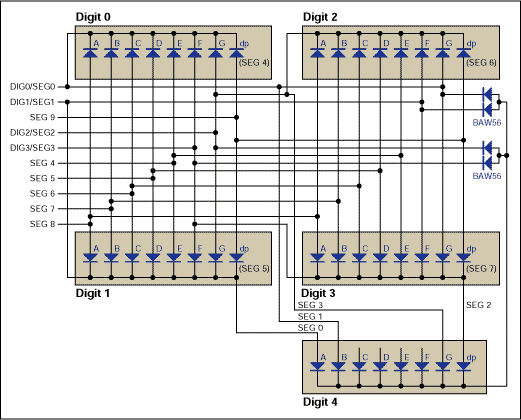
Figure 2. The MAX6958/59 connection to a 4-1/2 digit display.
The example circuit is suitable for a 4-1/2 digit meter application which only needs the 5th (most significant) digit to indicate a 1 (using segments a and b) the decimal place segment, and negative polarity (using segment g). Each diode only carries a single segment's 23mA current, and that for only 1/4 of the time each due to the multiplexing. Low cost signal diodes like 1N4148 or dual surface mount diodes like BAW56 are therefore a good choice. Small signal diodes like these will have a forward voltage drop of 900mV or so at this current, so the circuit will need to be operated from a 5V nominal supply voltage to compensate for the extra voltage drop.
Figure 3 shows the resulting 4-1/2 digit display with all segments lit. In a true ±19999 meter display, the rightmost dp segment is usually not required. In other words, the display usually needs to show 1.9999 or 19.999 or 199.99 or 1999.9, but 19999. is redundant. The unused segment capability could therefore be used to drive an extra discrete LED instead, for example one that is made to blink for each measurement taken.

Figure 3. 4-1/2 digit display with all segments lit.
The MAX6958 and MAX6959 are 4-digit, 9-segment LED drivers which use a reduced pin count multiplexing scheme to drive 36 segments using only 10 drive pins (Table 1). This application note discusses a technique to drive four segments of a 5th, additional digit. A 5th digit is required for meter display applications displaying numbers in the range -19999 to 19999. The technique described here enables the MAX6958/59 to drive 5 digits to display -19999 to 19999 keeping all five dp (decimal point) segments, so that measurement scaling can also be displayed.
The MAX6958/59 uses four multiplex cycles, as shown by Table 1. The driver is therefore a good fit for applications using 4 digits and 4 to 8 discrete LEDs. The example schematic in Figure 1 shows the wiring connections of a MAX6958 or MAX6959 display to four 7-segment-plus-dp digits and 4 discrete LEDs. If the dp (decimal point) segments aren't used, then another four discrete LEDs can be driven instead making a total of eight discrete LEDs.
Table 1. Standard Driver Connection for the MAX6958/59
|
|
Pin 4 |
Pin 5 |
Pin 6 |
Pin 7 |
Pin 11 |
Pin 12 |
Pin 13 |
Pin 14 |
Pin 15 |
Pin 3 |
|
|
|
|
|
|
|
|
|
|
|
|
|
|
|
|
|
|
|
|
|
|
|
|
|
|
|
|
|
|
|
|
|
|
|
|
|
|
|
|
|
|
|
|
|
|
|
|
Although Figure 1 shows the four digits as separate displays, Digit 0/1 and Digit 2/3 can be a built using a pair of dual-digit displays instead of single-digit displays.

Figure 1. Typical application - MAX6958/59 connections to four Digits with DPs.
The four discrete LEDs SEG 0 through SEG 3 are wired to the driver in a fairly convoluted manner, as shown in Figure 1. As these four LEDs are not wired with a common anode or cathode, it is not possible to drive directly four segments of a fifth 7-segment digit instead of four discrete LEDs. However, as Table 1 shows, the four segments SEG 0 through SEG 3 are driven during different multiplex cycles. That means that all we have to do to drive a 5th digit is to ensure that the 5th digit's cathode is always driven by the appropriate cathode driver during each multiplex timeslot. Figure 2 shows how to do this with four diodes. The diodes simply steer whichever cathode drive output is low into the 5th digit's cathode.

Figure 2. The MAX6958/59 connection to a 4-1/2 digit display.
The example circuit is suitable for a 4-1/2 digit meter application which only needs the 5th (most significant) digit to indicate a 1 (using segments a and b) the decimal place segment, and negative polarity (using segment g). Each diode only carries a single segment's 23mA current, and that for only 1/4 of the time each due to the multiplexing. Low cost signal diodes like 1N4148 or dual surface mount diodes like BAW56 are therefore a good choice. Small signal diodes like these will have a forward voltage drop of 900mV or so at this current, so the circuit will need to be operated from a 5V nominal supply voltage to compensate for the extra voltage drop.
Figure 3 shows the resulting 4-1/2 digit display with all segments lit. In a true ±19999 meter display, the rightmost dp segment is usually not required. In other words, the display usually needs to show 1.9999 or 19.999 or 199.99 or 1999.9, but 19999. is redundant. The unused segment capability could therefore be used to drive an extra discrete LED instead, for example one that is made to blink for each measurement taken.

Figure 3. 4-1/2 digit display with all segments lit.
 電子發燒友App
電子發燒友App










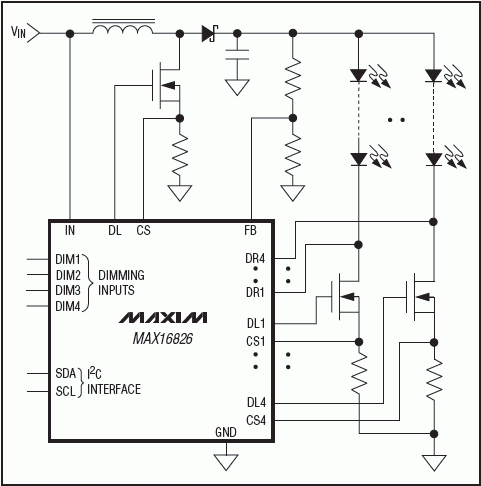
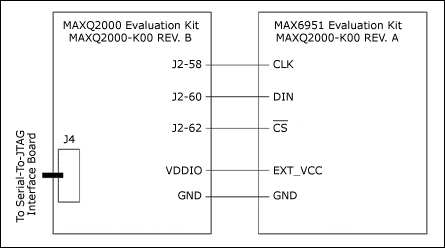
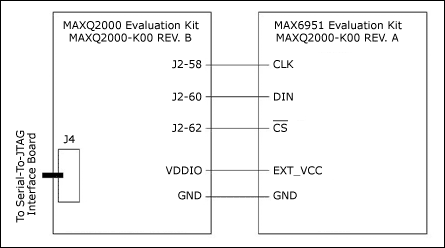
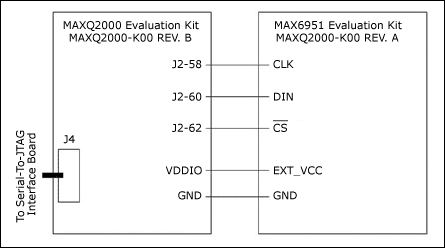
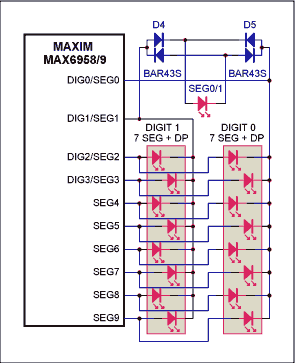
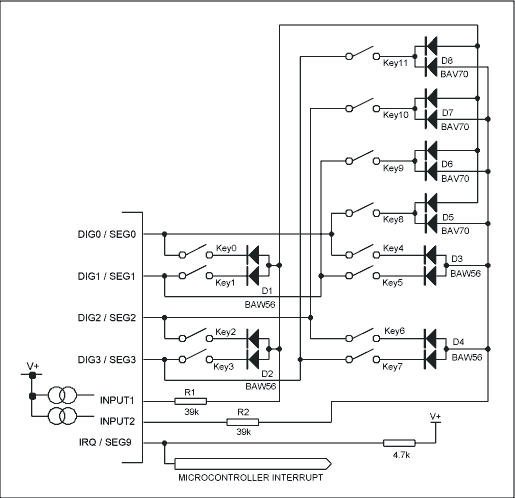


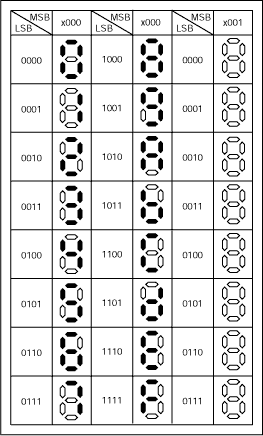
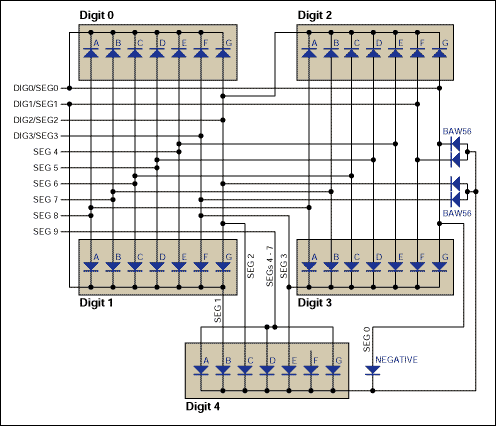
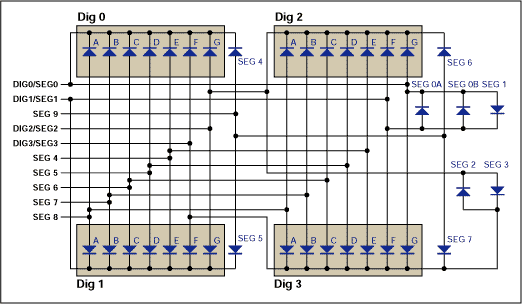
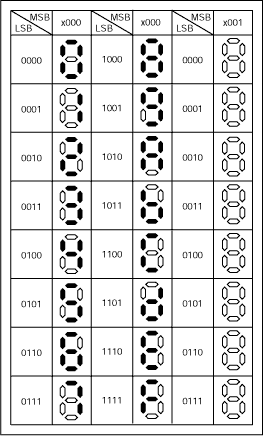
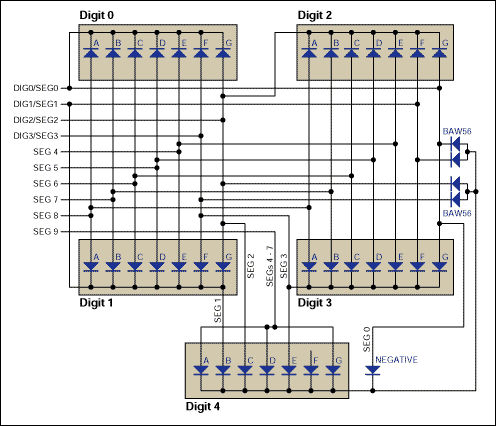
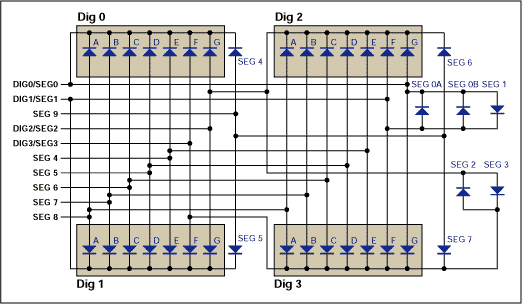
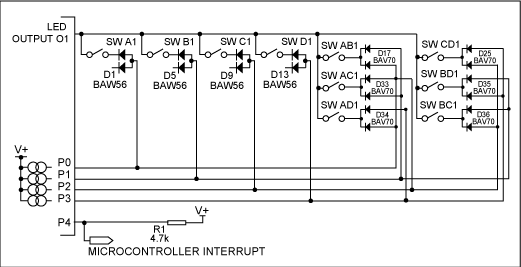
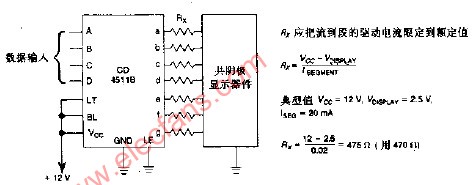
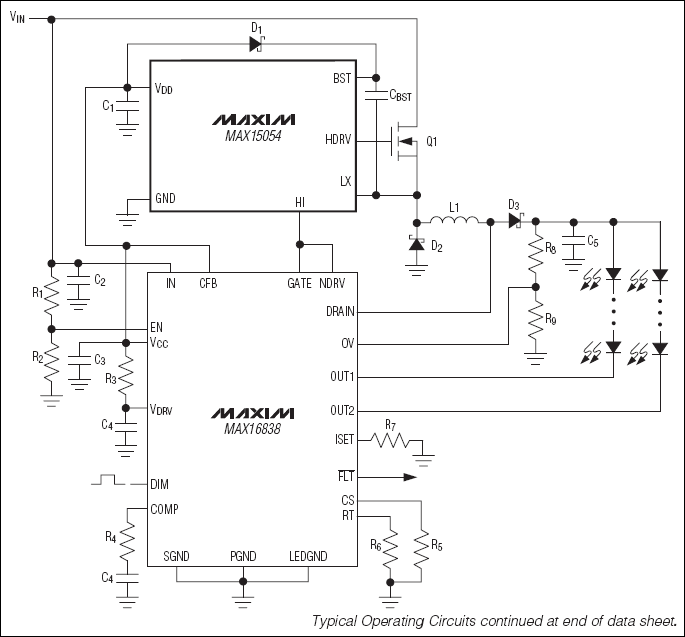
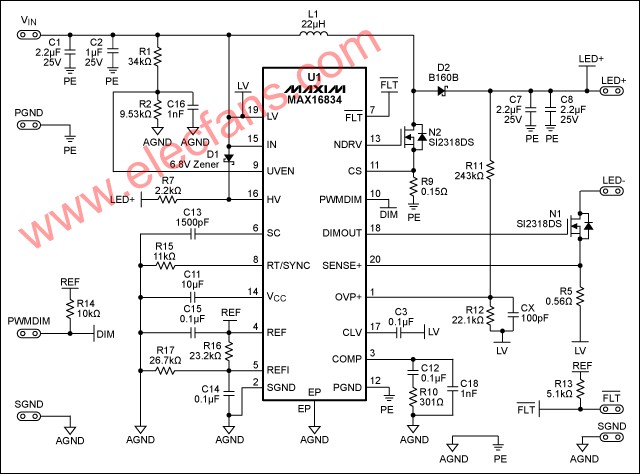
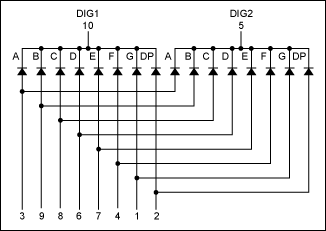
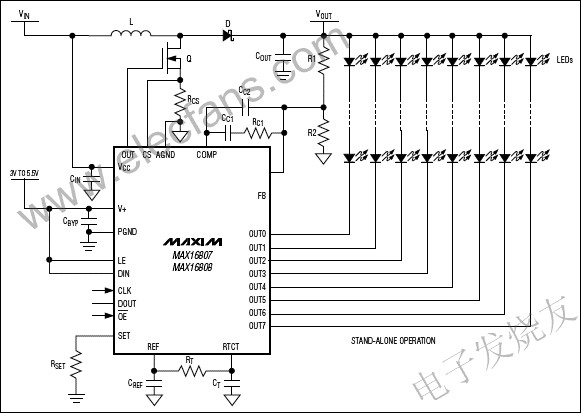





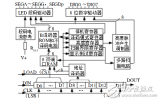
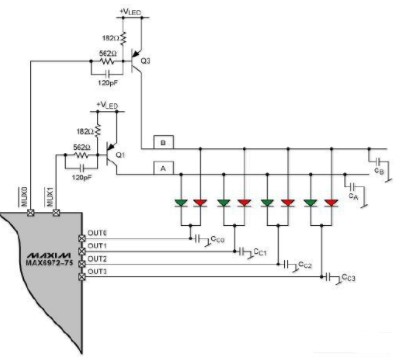
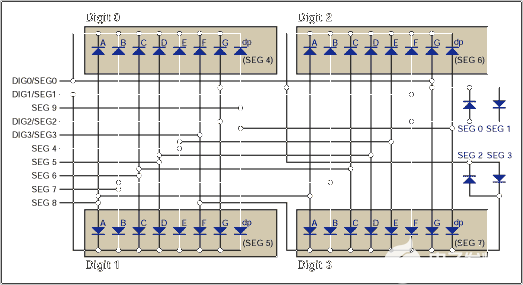
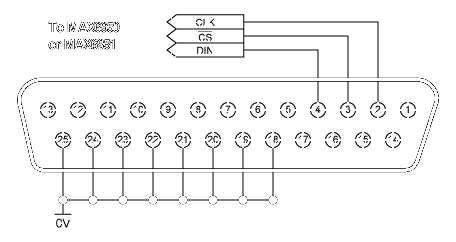
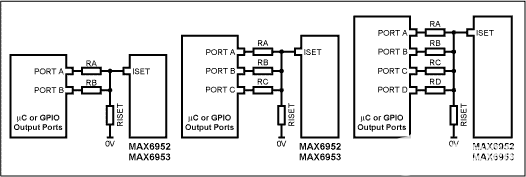
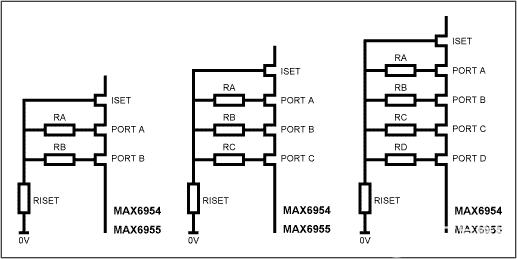
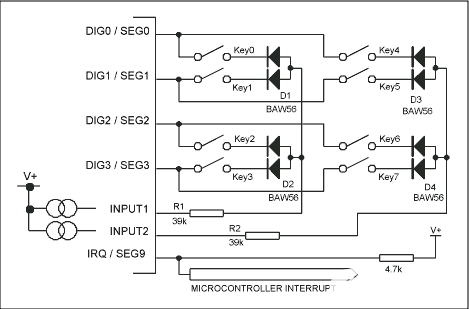

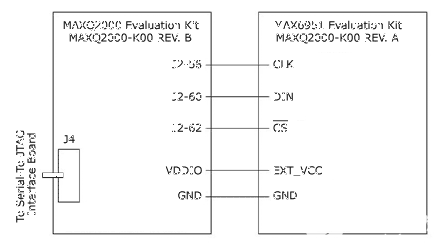
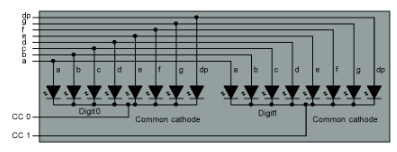
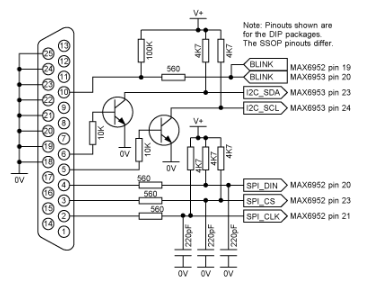

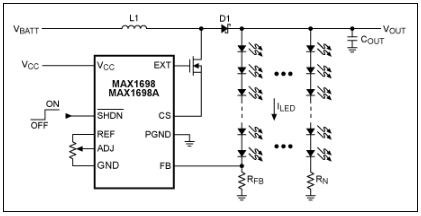
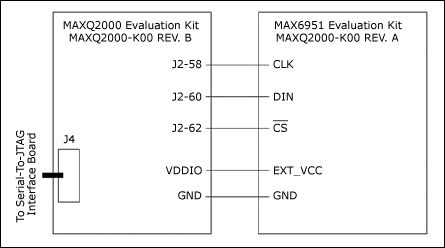
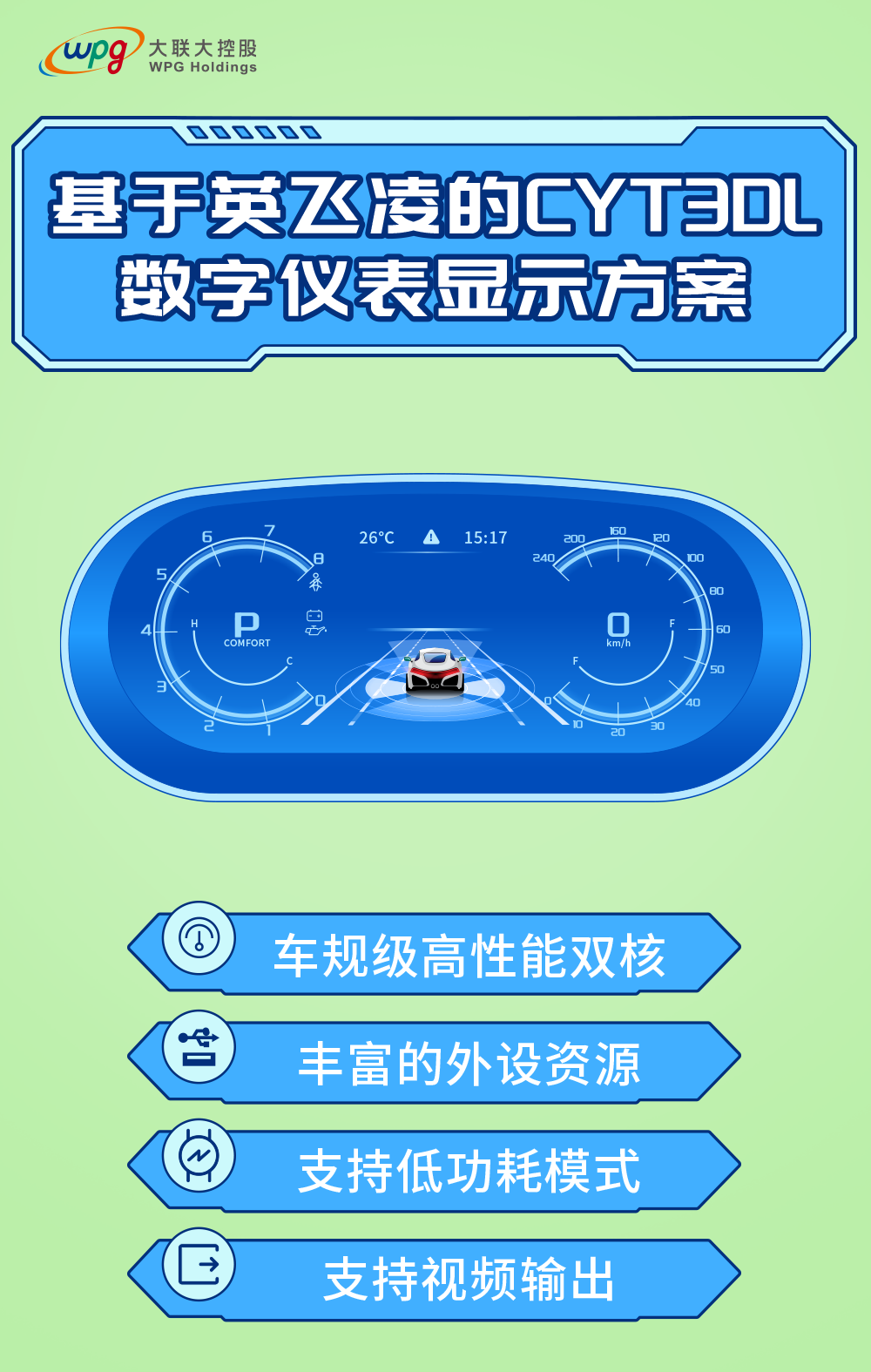










評論